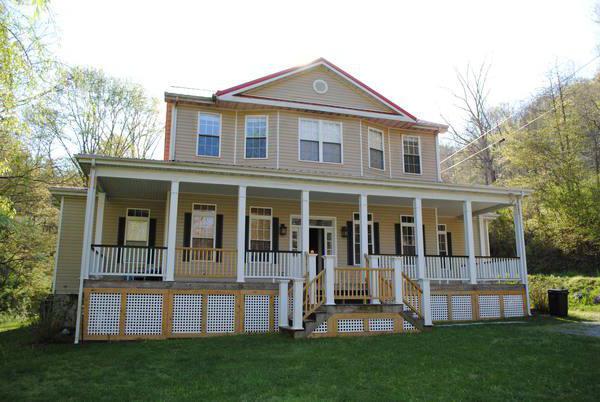For the past twenty years, the Russian Federation has been privatizing housing. This is done on a free basis. But still a large number of people live, as before, under a social contract of employment in municipal apartments.
Such accommodation costs them a little cheaper than those who have their own housing. But they do not have the right to dispose of such real estate. For example, if a person who lives in a non-privatized apartment wants to change his place of residence, then he will not be able to sell his apartment, the only way out is to exchange it. Many are interested in whether it is possible to exchange a non-privatized apartment for a house or other real estate. There is a definite answer - yes. You can, but you need to collect a number of documents.

Is it possible to exchange a non-privatized apartment for a privatized one?
According to the existing law of the Russian Federation, only its full owner can dispose of his apartment, it is not allowed to sell municipal housing, but you can exchange it. But this will require written permission from the landlord, as well as family members living in the living room with the tenant.
You can find out how to make an exchange of a non-privatized apartment by reading the Housing Code of the Russian Federation (Articles 72-75). This document prohibits moving to another apartment in such cases:
- if the right to use the given premises by the tenant is disputed in court;
- if the tenant has received a lawsuit to amend or terminate the social contract of employment;
- housing is recognized as emergency or unsuitable for living in it;
- the house is intended for demolition or will be converted for other purposes;
- the house is subject to major repairs, during which re-planning of the premises will be carried out;
- it’s a communal apartment, and during the exchange a person with a serious chronic illness can move in and other residents of the communal apartment can get infected (Decree of the Government of the Russian Federation No. 378 lists the diagnoses).
It is also worth noting that a big problem for owners of municipal housing can be a contract that clearly indicates that the living space cannot be exchanged. In this case, this process is much more complicated, the only way is to renew the social contract of employment.

Many people are interested in the question: is it possible to exchange a non-privatized apartment if the apartments are located in different settlements. If the exchange was approved by the landlord, then such a transaction is permitted. Exchange may be prohibited if, after moving to another city, each family member gets an area that is less than the norm (the accounting norm is different in each region).
As you already noticed, there are many obstacles to the exchange of non-privatized housing, but if all these cases do not concern your apartment, then you can safely apply for an exchange permit to the municipal authorities, where a social contract was concluded, and then start looking for the necessary housing.
Search for a suitable option
So, to the question of whether it is possible to exchange a non-privatized apartment, we received an affirmative answer. Now you should start looking for a replacement. It should be noted right away that this procedure is not as simple as it might seem, because not every apartment owner wants to make this kind of exchange. 
Those who have already been looking for a counter option may note that this is a rather troublesome business.A very good way out would be to find relatives or acquaintances who also have non-privatized housing, and they agree to swap. But such people are not so easy to find, and often it takes a lot of effort to find the right option for sharing.
This option is the most acceptable, with documents there are much fewer problems, and relatives are more likely to change living quarters than strangers.
Ways to search for an apartment
As a rule, there are two ways to find an apartment for exchange: on your own or with the help of a real estate specialist. The option with a realtor is less problematic: a specialist will help you find the necessary apartment faster, explain what documents are needed for this transaction, and assist in the proper paperwork. However, the services of a person in this profession are paid, so it is worth considering this option again. 
In the case of an independent search for housing, you will have to work hard: find out possible options from your friends, place ads in newspapers, and search through the Internet. In any case, each person must decide which option suits him best.
Obtaining permission and collecting documents
The exchange of non-privatized housing is not recorded in Rosreestr. Exchange transactions are recorded in special institutions. For example, in Moscow this happens in the urban rental housing center.
Owners of two living quarters must have:
- Exchange statement. It will have to be made up by all the people who live in these apartments.
- Properly executed contracts that indicate that a person officially rents housing from the state.
- House book.
- Passports of citizens of the Russian Federation. If minors who do not yet have a passport live in the apartment, then you need to take a birth certificate.
- Consent to the exchange. This document should be compiled by those who have a social contract of employment. Notary certification is first required that the person really wants to make an exchange.

Help from guardianship authorities
In addition, if minor children, persons with limited legal capacity or incompetent persons are registered in the apartment to be exchanged, written consent must be provided to the guardianship authorities. It is worth noting that obtaining a document regarding a minor child is quite difficult. Moreover, the child needs to be discharged from his current apartment, and this operation can only be done if you immediately register him in another residential building. The second place of registration should not be inferior to the previous one. Otherwise, the child will not be able to be discharged and a certificate from the guardianship authorities simply cannot be obtained.
If one of the tenants is against the exchange, then in this case everything is decided by the court.
Considers the exchange application and decides the special housing commission created by the municipality. A negative decision may be challenged in court.
Exchange
Previously concluded rental agreements are terminated on the basis of an apartment exchange agreement. Immediately sign new social rental contracts for already new housing. These procedures must be carried out by the landlord within 10 days after the submission of all documents.

Exchange of an apartment for a house
It is worth noting that the principle of exchanging a non-privatized apartment for a house is exactly the same as the exchange of an apartment for an apartment. All the same, the tenant needs to take permission to carry out this procedure and collect the same documents. Be sure to consider the factor that if the area of the house is less than the current housing, then the exchange will be impossible.
A related exchange of non-privatized apartments for privatized and vice versa
How the exchange of a non-privatized apartment for housing, which is owned, is made out, is not directly stipulated in Russian law.This is usually a lengthy process.
The exchange of a privatized apartment for a non-privatized one is carried out as follows: an adult family member is deregistered in the privatized housing and registered in the non-privatized one (the size of the living space should allow it). Then the main tenant is changed, this can be done through a donation agreement.
Conclusion
So, it was explained whether it is possible to sell or exchange an un privatized apartment. Summing up, we can say that exchange is possible, it is often used by people who live in an apartment under a social contract of employment. But the sale of such housing is strictly prohibited.